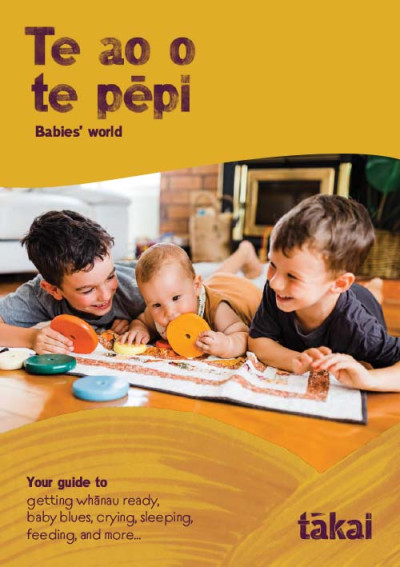
Feeding a newborn
Pregnancy is a good time to talk about how you're going to feed pēpi, and to consider the many benefits breastfeeding offers.
How parents feed their baby is a personal decision.
Other people will have opinions and they won’t be shy about sharing them.
Pregnancy is a good time for parents to think and talk about what they will choose to do.
Benefits of breastfeeding for baby
Human breast milk:
- is easily digested by baby
- contains all the protein, vitamins and fat that baby needs for growth
- optimises baby’s growth and development
- contains natural antibodies that help baby fight bacteria and viruses, and stay well
- reduces the risk of baby developing allergies and asthma
- reduces the risk of sudden unexpected death in infancy (SUDI).
Babies who are exclusively breastfed (no formula) for the first 6 months have fewer:
- ear infections
- respiratory illnesses
- incidences of diarrhoea
- trips to the doctor and to hospital.
Breastfeeding helps the mum and baby develop a secure attachment.
Breastfed babies are less likely to be overweight.
Benefits of breastfeeding for māmā
Breastfeeding:
- makes the body release a hormone called oxytocin that helps bring the uterus back to normal size and may reduce bleeding
- uses up calories and may help to get back to pre-pregnancy weight
- reduces the risk of developing breast and ovarian cancer
- may reduce the risk of developing osteoporosis
- means no need to buy formula, sterilise bottles and warm up milk.
When you've learned how to breastfeed pēpi, it’s convenient and relaxing. And it’s the perfect way to connect and bond with baby.
Breast milk can be expressed for bottle feeding too.










